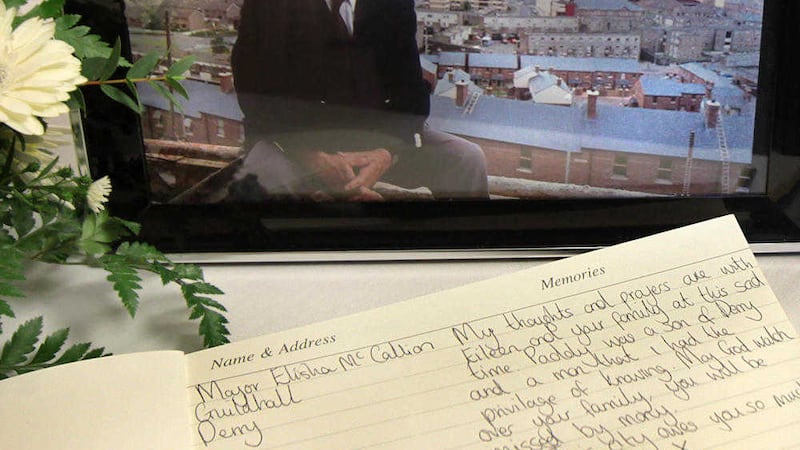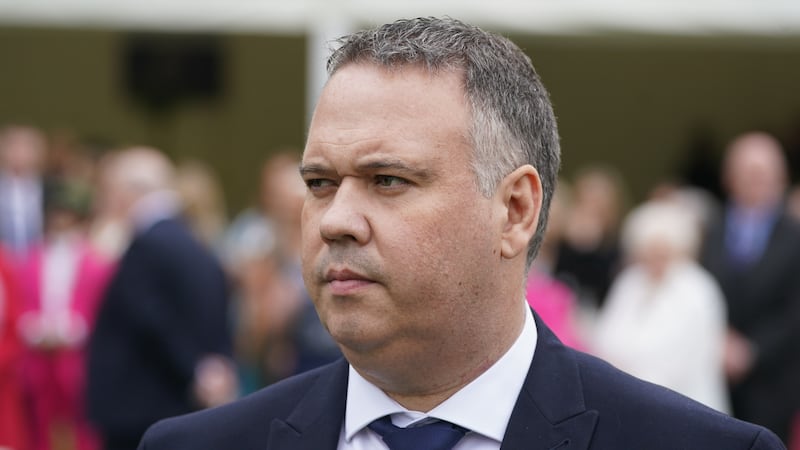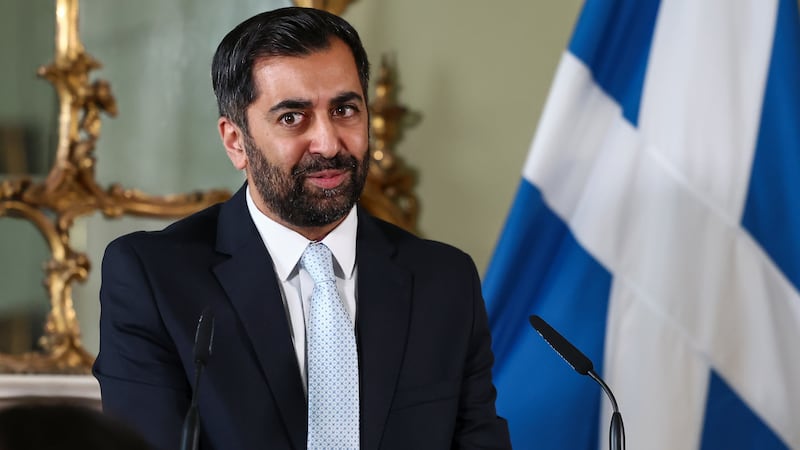CHURCH and political figures have led tributes to "legendary" civil rights leader Paddy 'Bogside' Doherty.
Mr Doherty, who died aged 89 at his home in Derry on Thursday, was described as a "towering figure" and "lion of civic ambition".
A joiner by trade, he came to the fore in events leading up to the 'Battle of the Bogside' in 1969.
With other community leaders, he helped set up the Derry Citizens’ Defence Association and was one of the key people involved in establishing 'Free Derry' to protect citizens against incursions by the RUC, B Specials and loyalists.
During the Battle of the Bogside, as exhausted Bogsiders repeatedly drove the RUC back, it was Mr Doherty who issued a famous rallying call to “able-bodied men” to come to their aid.
After three days, the battle ended when the British army was deployed. In the days that followed, after negotiation, Mr Doherty had the barricades replaced with a symbolic white line with the British army agreeing not to enter.
Recalling the period years later, he said: “On one occasion, one of the British majors jumped across the white line and jumped back across the white line and he said ‘You go and tell Doherty I was in Free Derry'.”
Mr Doherty's reputation continued to grow in the years that followed as he became one of the key architects of the self-help movement in the city, involved in the Credit Union and other organisations.
He was a founder of the Inner City Trust which was established to rebuild the old city following years of neglect and troubles.
Mr Doherty’s scheme involved developing old buildings and constructing new ones with craftsmen and tradesmen sharing their expertise with unemployed young people.
This resulted in the construction of some of the city’s best known buildings, including the Doherty Tower which eventually became the city’s Tower Museum, the Craft Village, the Calgach Centre and the Nerve Centre.
He continued to work with the trust up until 2014 and propose changes to Derry’s physical landscape
In 2007, Mr Doherty set out plans to build a 160ft statute of Derry’s patron, St Columba, on the banks of the Foyle.
He believed the statue, which never came to fruition, would rival the iconic sculptures of the world including the Rio De Janeiro statue of Christ the Redeemer.
In 2010, he was awarded an honorary degree by the University of Ulster in recognition of his life’s work.
A book of condolences was opened at the Guildhall yesterday by the city’s mayor Elisha McCallion, who described him as a true Derry man who loved his city.
Retired Bishop of Derry Edward Daly described Mr Doherty as a "tour de force".
Church of Ireland bishop Ken Good said he was a "towering figure".
"He was one of those towering visionaries who saw this town he loved so well not just as it was but as it could be."
Deputy First Minister Martin McGuinness described Mr Doherty as a good friend and “legendary Derry man”.
“Paddy will be remembered by the older generation for his central role in the Derry Citizens’ Defence Association during what has become known as the Battle of the Bogside and the Free Derry era.
“But the younger generation will remember him as the driving force behind the many projects designed to regenerate our city and provide much needed employment to hundreds of young people.”
Former SDLP leader Mark Durkan said Mr Doherty always recognised potential.
He said he had huge pride in his city and “an even bigger heart” for its people.
“Paddy Doherty was a lion of civic ambition and community ethic. He was a true pioneer of methods of engagement and enablement which found wider practice with the development of the peace process,” he said.








